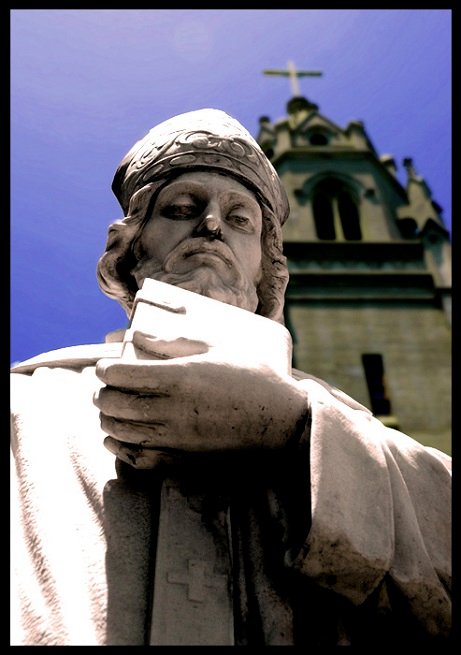The life of Aurelius Augustinus /second part/
After returning to Africa, he set up a monastic society in Tagash, where he and a group of his friends joined him. In 391 he was ordained a priest in Hippone (Late Hippo Regius, now Anaba in Algeria.) He became a famous preacher. More than 350 propels that are considered authentic are reserved. He is remarkable in his ideological opposition to the Manicheanism that he had previously defended. In 396, Augustine became an assistant bishop of Hippone (with the right to become a bishop after the death of the present) and remained a bishop until his death in 430. He left his monastery but continued the monastic life in the bishop's residence. He leaves one rule for monasticism, which gives him the title of "patron saint of the clergy" - the clerics who are not monks but live according to monastic rules. Augustine dies in the summer of 430, during the siege of Hippone by the vandals.
Augustine remains a central figure in both Christianity and Western thought. He is considered the first medieval scientist and the last classical scholar. Both in his philosophical writings and in his theological (theological) writings, he is strongly influenced by Stoicism, Platonism and Neo-Platonism, mostly by Plotin, the author of the Anead. This attachment to the Neo-Platonic thought has contributed to the Christianization of ancient Greek thought and the introduction of this thought into Christianity and the European intellectual tradition. His influential work on man's will (a central theme in ethics) later became the subject of research by philosophers like Schopenhauer and Nietzsche. In addition, Augustine is also influenced by the works of Virgil (known for his language teaching) and Cicero (familiar with his teaching of argument). Augustine's vision of the first-born sin was developed in his works against the pelagians. However, Eastern Orthodox theologians (theologians), although believing that all people are harmed by the original sin of Adam and Eve, are in a key dispute with Augustine on this doctrine, and therefore it becomes a point of division between the East and the West . Augustine's labors help shape the theory of "righteous war". It also supports the use of force against donations. Thomas Aquinas takes much of the theology of Augustine, although he creates his own unique synthesis of Greek and Christian thought after the extensive reinvention of Aristotle's works. The August doctrine of the divine predestination is not forgotten by the Roman Catholic Church and is reflected in the works of St. Bernard of Clare. Reformist theologians like Martin Luther and Jean Calvin rediscover Augustine, and he becomes the source of inspiration and understanding of the biblical Gospel.
His foundation, "De Civitate Dei," consisting of 22 books and more than 1,500 pages. It was a response to the accusations that Christians betrayed Ancient Rome because they undermined secular authority and preached the end of the world. According to Augustine, Earth's and God's cities depend on two different feelings of love. He argues that the type of society depends on the way people direct their hearts. It depends on whether their will is corrupt, guarded for themselves or dedicated to the zealous service of God. If the holy one exists, not the just God, and man may have wished it in some way. He has abused his freedom in Heaven and has done evil by accepting to live not in God's way, but in a man's way: "Not with this man has become devoted to the devil that he has flesh the Devil does not have , but in that it only lives for itself, that is, in a human egoistic way. When a person lives in a human way, and not in the way God has appointed, he becomes similar to the Devil. According to Augustine, the child, even if innocent, shares the misuse of Adam with the will of the will, and at least potentially shares the selfishness, selfishness, greed and arrogance inherent in fallen humanity. Augustine writes that the Republic of Rome has never been a republic because there has never been real justice in it. There is no real justice except in this republic, the founding governor of which is Christ, because it can not be denied that it is only the work of the people . True justice exists only in this City, for which the Holy Scripture speaks: "I praise the verb, I am with you, the Grace of God.

Dikkat çekici
it's quite interesting to read, is it a clipping from the Bible or from another book :)?
You have recieved a free upvote from minnowpond, Send 0.1 -> 10 SBD with your post url as the memo to recieve an upvote from up to 100 accounts!